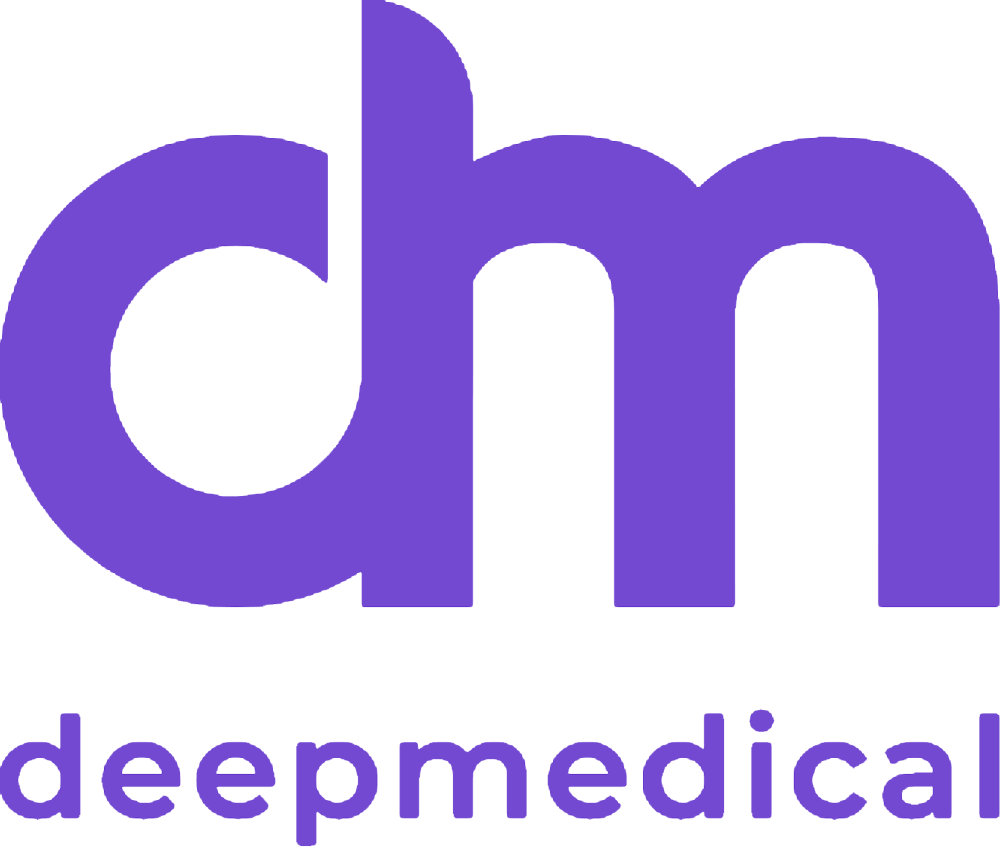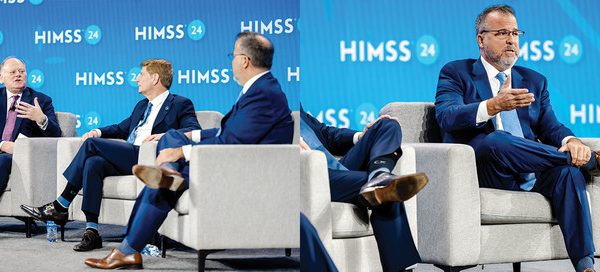The National Health Service (NHS) is set to introduce artificial intelligence (AI) receptionists in a bid to reduce missed hospital appointments. This innovative technology, which is capable of booking appointments and predicting attendance rates, is planned to be implemented in 10 NHS trusts across England following a successful trial in Essex.
Created by Deep Medical, a leading tech firm, the AI program utilizes various data points such as job information, childcare commitments, live traffic updates, and weather forecasts to determine which patients are least likely to show up for their appointments. The aim is to optimize doctors’ time and address the issue of Did Not Attends (DNAs), which account for one in 20 hospital appointments.
NHS leaders are determined to tackle the extensive waiting lists, which currently stand at 7.6 million. By addressing the problem of DNAs, they hope to significantly reduce this number. In 2023 alone, out of 124.5 million outpatient appointments in England, eight million appointments (equivalent to 6.5 percent) were no-shows.
The creators of the AI program, an AI expert and a former junior doctor turned clinical entrepreneur, claim that their product can accurately predict DNAs with an impressive 90 percent accuracy rate. Through machine learning, the program can generate a doctor’s patient list for the day, even including additional patients. For instance, if there are 20 consultant slots available, the program would calculate 21 patients, assuming one person would not attend the appointment. If all 21 patients do show up, the doctor can claim the extra time back and this information is taken into consideration for future scheduling.
The initial pilot of the AI receptionist program at the Mid and South Essex NHS Foundation Trust demonstrated promising results. Over a span of six months, DNAs decreased by 30 percent, with only 377 people failing to attend their appointments. As a result, an additional 1,910 patients were able to be seen, and the trust is projected to save approximately £27.5 million in just one year. The cost of missed appointments across the entire country is estimated to be around £1.2 billion.
Numerous hospitals in London, Newcastle, Northampton, Surrey, and Devon are among those expected to benefit from this groundbreaking AI technology. Other NHS trusts are likely to follow suit and adopt this system as well.
According to data, the highest proportion of DNAs occurs in physiotherapy, with 11 percent of slots being missed. Other specialties such as cardiology, ophthalmology, trauma, and orthopedics also experience significant rates of DNAs.
Dr. Vin Diwakar, the national director for transformation at NHS England, highlighted the importance of AI in reducing missed appointments and improving patient care. He stated, “Not only can these technologies help to free up doctors’ time to treat more patients and reduce waiting times for planned care, it means a significant amount of money can be invested in frontline care rather than lost to missed appointments.”
The recent announcement by Chancellor Jeremy Hunt on allocating an additional £3.4 billion of funding for the NHS solidifies the commitment to investing in new technology. Lord Markham, the health minister, emphasized the transformative nature of AI in healthcare delivery, explaining, “Artificial intelligence is transforming the way we deliver healthcare, and this technology will help cut waiting lists and allow hundreds of thousands more patients to be seen every year.”
Alongside the benefits of freeing up doctors’ time, delivering quicker test results, and saving tens of millions of pounds annually, AI forms a central part of the £3.4 billion plan to boost productivity in the NHS. This plan also includes replacing outdated IT systems and unlocking up to £35 billion in savings.
In a separate pilot at the University Hospitals Coventry and Warwickshire NHS Trust, “process mining” was utilized to assess the efficiency of their procedures. This analysis revealed bottlenecks and areas for improvement. By adjusting their messaging strategy and sending reminders two weeks and four days before appointments, the trust successfully reduced DNAs from 10 percent to four percent.
Overall, the implementation of AI receptionists and the utilization of advanced technologies like process mining have the potential to revolutionize the healthcare industry. These innovations not only enhance patient care but also optimize resource allocation, resulting in better outcomes for both patients and healthcare providers.
FAQ
What is a DNA appointment?
A DNA appointment refers to a patient’s failure to attend a scheduled hospital appointment without providing any prior notice or cancellation.
How does AI receptionist technology work?
AI receptionists use various data points such as job information, childcare commitments, live traffic updates, and weather forecasts to predict which patients are less likely to attend their appointments. This information helps optimize doctors’ time and improve scheduling.
What are the potential benefits of AI receptionists?
AI receptionists can free up doctors’ time, reduce waiting lists, allow for more efficient resource allocation, and save significant amounts of money that would otherwise be lost due to missed appointments.
How accurate is the prediction of DNAs using AI?
The creators of the AI program claim that their product can predict DNAs with up to 90 percent accuracy through machine learning and advanced algorithms.
What other technologies are being used to tackle missed appointments?
Process mining is another technology being utilized to assess the efficiency of healthcare procedures. By identifying bottlenecks and making necessary adjustments, healthcare providers can minimize missed appointments and improve overall patient care.
Are more hospitals expected to adopt AI receptionists?
Yes, hospitals in London, Newcastle, Northampton, Surrey, and Devon are among those set to benefit from AI receptionists. It is also likely that more NHS trusts will adopt this technology in the near future.
(Sources: NHS, Deep Medical)
What is a DNA appointment?
A DNA appointment refers to a patient’s failure to attend a scheduled hospital appointment without providing any prior notice or cancellation.
How does AI receptionist technology work?
AI receptionists use various data points such as job information, childcare commitments, live traffic updates, and weather forecasts to predict which patients are less likely to attend their appointments. This information helps optimize doctors’ time and improve scheduling.
What are the potential benefits of AI receptionists?
AI receptionists can free up doctors’ time, reduce waiting lists, allow for more efficient resource allocation, and save significant amounts of money that would otherwise be lost due to missed appointments.
How accurate is the prediction of DNAs using AI?
The creators of the AI program claim that their product can predict DNAs with up to 90 percent accuracy through machine learning and advanced algorithms.
What other technologies are being used to tackle missed appointments?
Process mining is another technology being utilized to assess the efficiency of healthcare procedures. By identifying bottlenecks and making necessary adjustments, healthcare providers can minimize missed appointments and improve overall patient care.
Are more hospitals expected to adopt AI receptionists?
Yes, hospitals in London, Newcastle, Northampton, Surrey, and Devon are among those set to benefit from AI receptionists. It is also likely that more NHS trusts will adopt this technology in the near future.
Definitions
DNAs: Did Not Attends, refers to patients who fail to attend a scheduled hospital appointment without providing any prior notice or cancellation.
AI: Artificial Intelligence, refers to the simulation of human intelligence in machines that are programmed to think and learn like humans.
Machine Learning: A subset of AI, refers to the ability of machines to learn and improve performance without being explicitly programmed.
Process Mining: A technology that analyzes data from various systems and processes to identify, monitor, and optimize processes within an organization.










